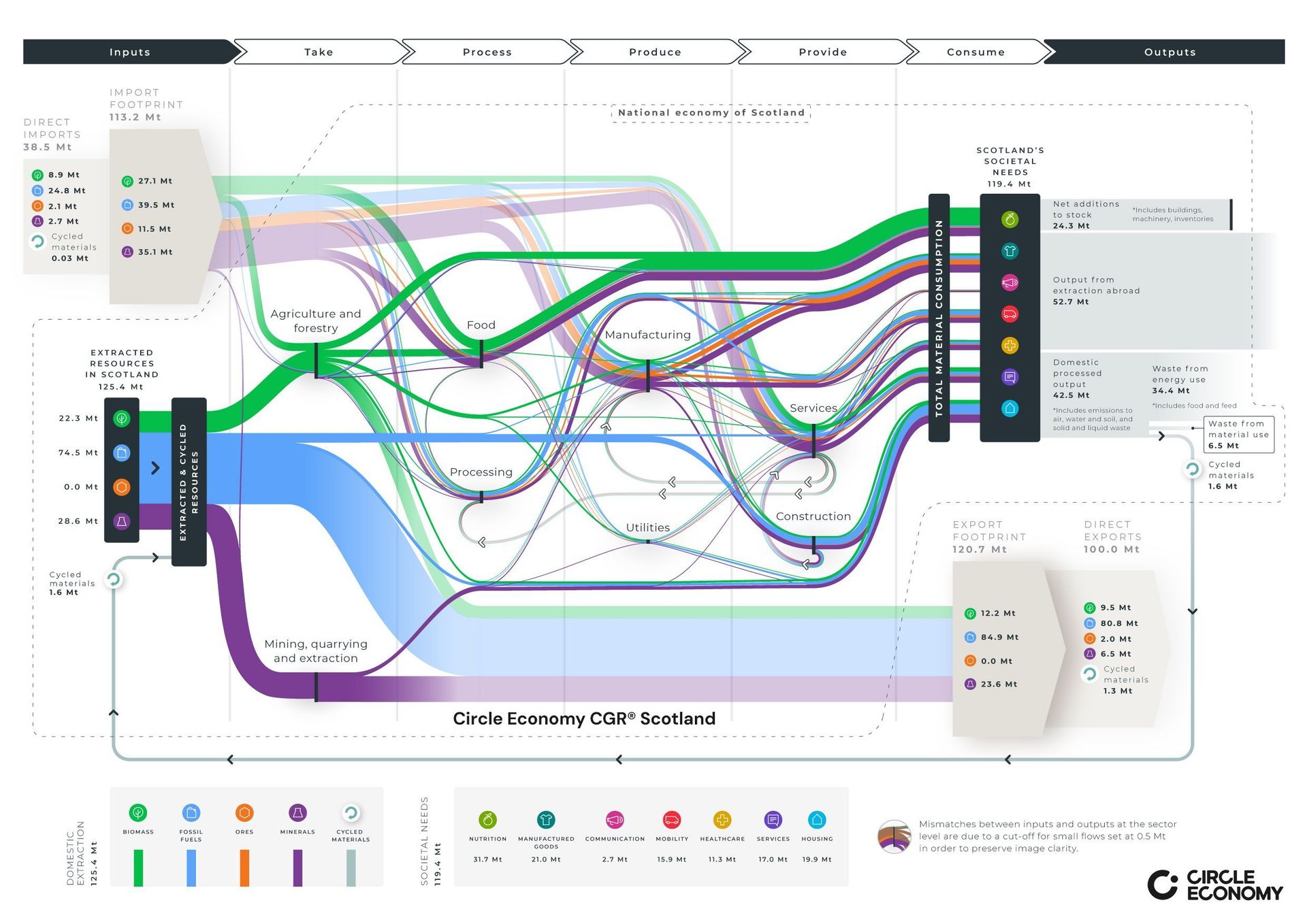How Circle Economy helped shape Scotland’s Circle Economy Bill
Insights from the Circularity Gap Report (CGR®) directly informed Scotland’s Circular Economy Bill—one of the most science-based in Europe—showing how our data drives ambitious regulation and lasting impact.
Real-world results: What changed in Scotland
A ban on destroying unsold goods is forcing retailers to rethink surplus management, encouraging donation, reuse, and resale.
A proposed 25 pence charge on disposable coffee cups (‘latte levy’) aims to curb single-use waste, mirroring the success of previous plastic levies.
Local councils can now fine households that repeatedly fail to recycle correctly, helping increase compliance and reduce contamination.
Recycling systems are being standardised across all 32 local authorities, tackling inefficiencies and boosting participation.
Regulators now have expanded enforcement powers, including the ability to seize vehicles for illegal dumping and require businesses to report on their waste practices.
The gap: Ambition without the data to back it
Before the CGR Scotland, the country had a vision but lacked a baseline. While its 2016 strategy, Making Things Last, set a clear goal, there was no way to track circular progress or identify what sectors mattered most. That changed in 2022, when Circle Economy delivered the first national CGR tailored to Scotland. The report revealed that Scotland was just 1.3% circular, far below the UK rate of 7.5%. It also identified high-impact sectors—construction, food, and manufacturing—and challenged narrow tonnage-based thinking in favour of a more holistic, actionable circularity framework.
What we delivered: Ambition without the data to back it
The Circular Economy Bill, passed in 2023, took these insights forward, translating analysis and strategies into enforceable, results-oriented law. With strong public backing and clear accountability mechanisms, the legislation is already influencing retail practices, household behaviour, and waste enforcement on the ground. And with the CGR providing the methodology and data framework to track circularity over time, progress is no longer just promised—it’s measurable. At the local level, our earlier work with the City of Glasgow through a Circle Scan laid important groundwork, engaging businesses and city leaders to explore circular opportunities on the ground.

Scotland’s story shows what happens when research becomes legislation—and legislation becomes change. If your city or region needs a data-driven path to circular policy, Circle Economy is ready to help.



